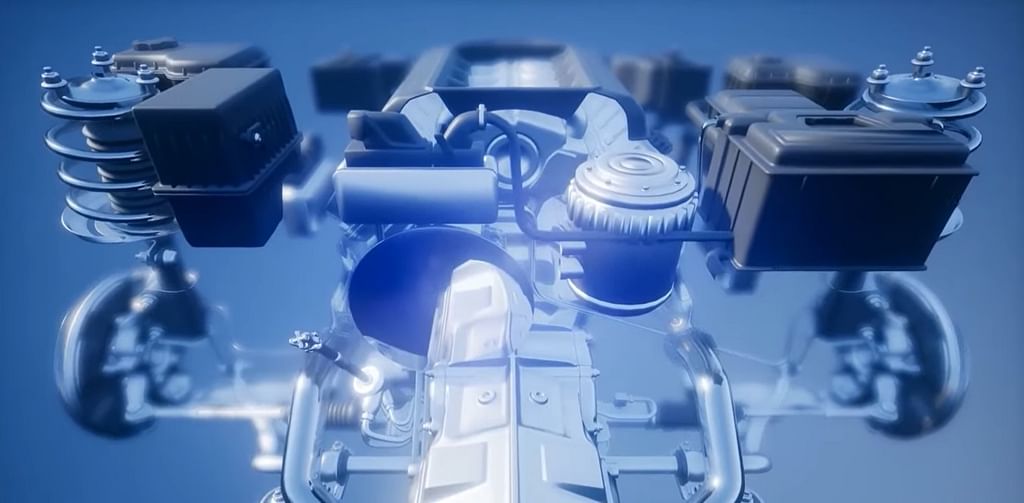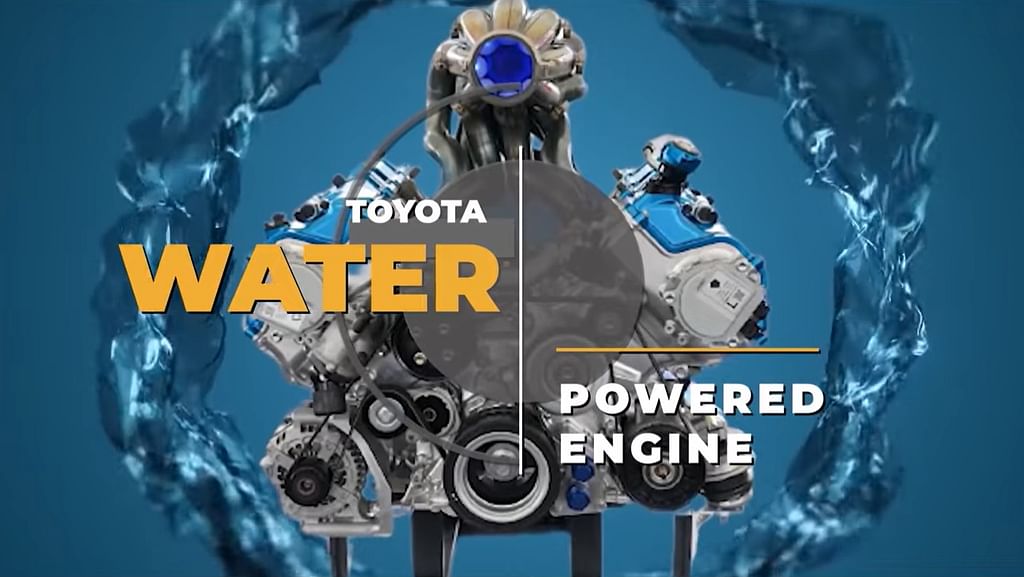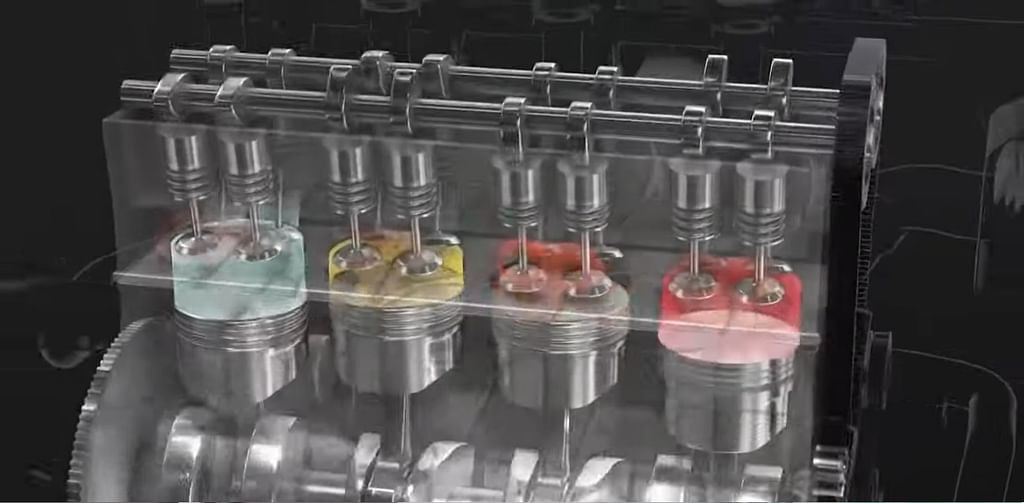Toyota, a brand synonymous with sustainability, is reportedly on the verge of unveiling an engine that could revolutionise the entire automobile industry. Forget about electric batteries and hydrogen fuel cells. Toyota is introducing a water-powered engine that promises unparalleled eco-friendliness. This might sound like something out of a science fiction novel, but Toyota is no stranger to pushing the boundaries of technology.
The company already has a strong foothold in eco-friendly automotive technology with its hydrogen-powered vehicles like the Toyota Mirai and its new 1.6-litre hydrogen three-cylinder engines. But this new engine is shaping up to be something entirely different. The concept of a water-powered engine is not new, but it has often been relegated to the realms of aspirational projects, academic exercises, or low-budget garage experiments.
Until now, no major automaker has succeeded in producing a water-powered engine that's practical, reliable, and ready for mass consumption. Toyota, backed by significant R&D budgets and world-class engineering talent, is well-positioned to turn this seemingly fantastical idea into an everyday reality.

So, how does Toyota's water-powered engine work? It transcends existing fuel technologies by performing electrolysis in real time to create a self-sustaining cycle. Unlike traditional hydrogen vehicles that require cumbersome high-pressure storage tanks, this engine employs a water tank equipped with electrodes. When these electrodes receive high voltages, they immediately separate water into its basic elements like hydrogen and oxygen. This on-the-fly electrolysis eliminates the necessity for external hydrogen storage, resulting in a more compact and lightweight design.
After the hydrogen is isolated, it is directed into the combustion chamber, where it ignites similarly to compressed natural gas. The whole setup is a self-contained marvel of engineering efficiency, obviating the need for intricate refuelling stations or external storage systems. The eco-conscious implications of this technology could be transformative. It emits near zero emissions, making it a formidable rival to even the most advanced electric vehicles. Moreover, it sidesteps the environmental repercussions associated with extracting rare earth metals for batteries and the oil consumption linked to traditional engines. This is sustainable mobility reimagined.
Beyond its ecological virtues, the engine is remarkably user-friendly. A vehicle with this engine can be refuelled with distilled water, a resource that is both abundant and accessible. This is in stark contrast to the logistical complexities of charging EVs or refuelling hydrogen vehicles, areas where infrastructure is still evolving.

The environmental ramifications of this new engine are profoundly promising. It produces nearly zero emissions. Rivalling EVs, but offering greater convenience. With easy refuelling from almost any source of diluted water, this engine sidesteps the logistical challenges plaguing both EVs and other hydrogen-based vehicles.
Moreover, the engine minimises the environmental degradation associated with oil extraction and the mining of rare earth metals, a particularly pollutant-heavy process that jeopardises local water sources and soil quality. When compared to hydrogen combustion engines and FCEVs, Toyota's water engine stands out as an eco-friendly marvel.
Storing water is effortlessly simple and inexpensive, in stark contrast to hydrogen, which demands heavily armoured, rigorously monitored tanks, along with significant financial investment. The pure form of hydrogen is challenging to contain, prone to escaping if there are any irregularities with the tank, necessitating constant monitoring and maintenance.
Meanwhile, a water-powered vehicle could essentially use any plastic container as its fuel tank. Additionally, storing hydrogen outside of a vehicle involves its own set of challenges, requiring specific temperature conditions and sturdy, leakproof tanks. Distilled water, in contrast, is readily available in most supermarkets and can even be produced at home using basic chemistry.
The costliness of producing and storing hydrogen has impeded its widespread adoption, ultimately driving up consumer prices and undermining its viability as a long-term fuel alternative. While water engines may sound like a futuristic concept, they are poised to be eminently practical for everyday use.
Contrary to some perceptions, these engines are not lacking in power. They can match the performance of conventional gasoline engines and potentially even surpass them. Water engines can generate up to three times more energy in megajoules compared to their gasoline counterparts.

Safety is another strong suit. The absence of continuously stored, highly combustible fuels significantly reduce the risks of fire or explosions. With their straightforward mechanical designs, water-powered engines offer an economical and scalable alternative to traditional gasoline engines. Their simplicity makes them more cost-effective to produce than either electric vehicles or fuel-cell electric vehicles.
This could make them an ideal solution for developing countries with limited oil resources. For example, Iranian scientist Aladin Qasemi successfully converted his Peugeot 405 to run on water, showcasing the feasibility and potential of such technology even without extensive resources. Water-powered engines are also impressively fuel efficient. Qasemi's converted 405 achieved between 30 and 40 miles per gallon of water. Significantly better than the gasoline engine of the same model. This suggests that with proper engineering, water-powered cars could deliver outstanding fuel economy, making them even more cost-effective to operate.
Though still in their infancy, water-powered engines appear to have a promising future. However, their road to mainstream adoption is not without challenges. Safety concerns, for instance, have been a hurdle for similar hydrogen-powered vehicles. Yet, the armoured designs of hydrogen combustion engines indicate that safe water-powered cars are attainable.
The inherently stable form of hydrogen storage in water further mitigates risks. Reliability is another strong point. The engine's simplicity makes them less prone to breakdowns compared to EVs. Should an issue with the electrolysis process occur, one could potentially carry a backup tank of hydrogen, although this is not a feature of Toyota's current design. Moreover, maintenance costs are expected to be low due to the engine's uncomplicated design, consisting of fewer mechanical components and electronics that could fail.
from Vikatan Latest news https://ift.tt/LqmR1td



0 Comments